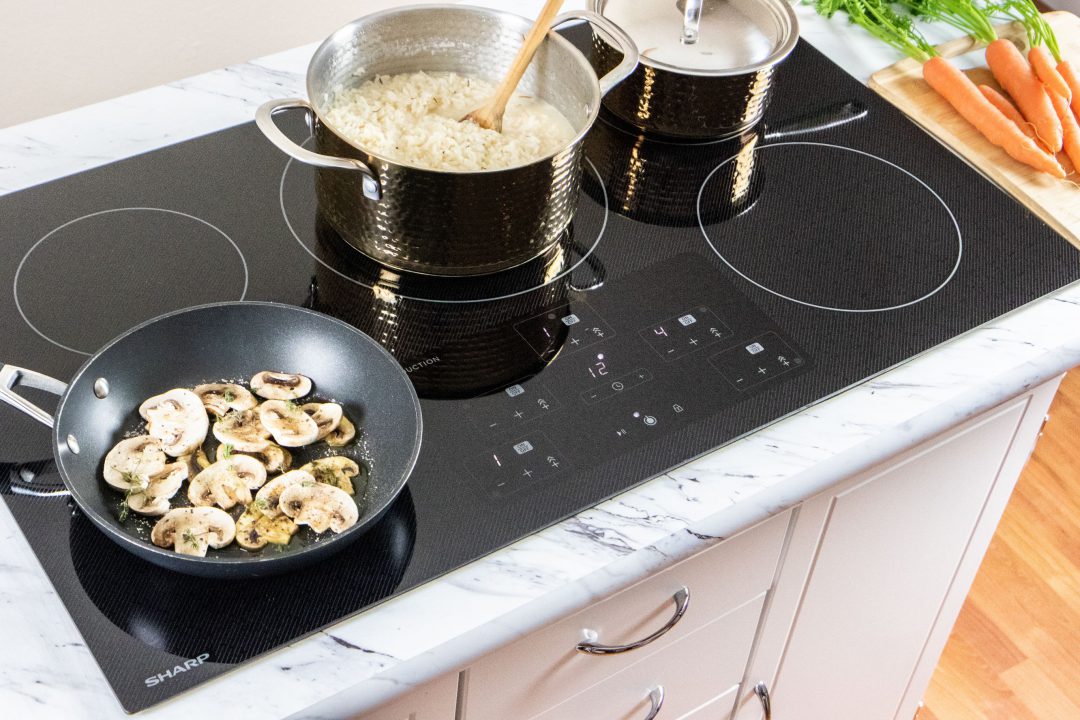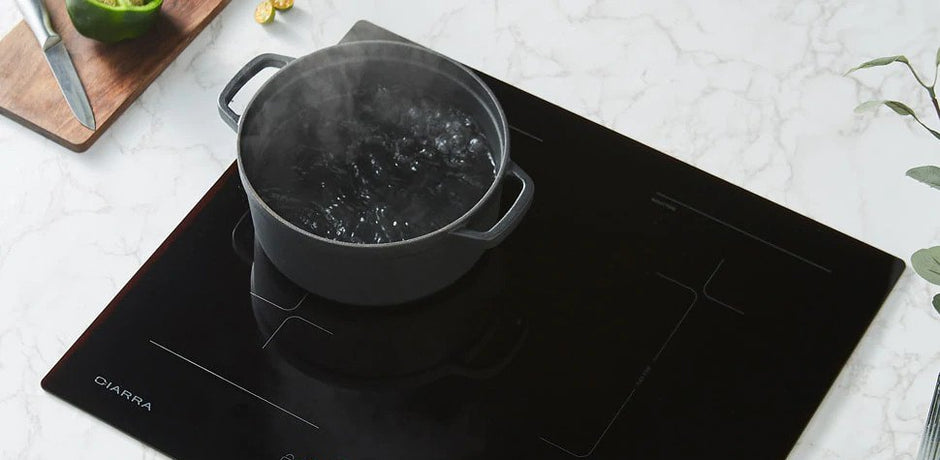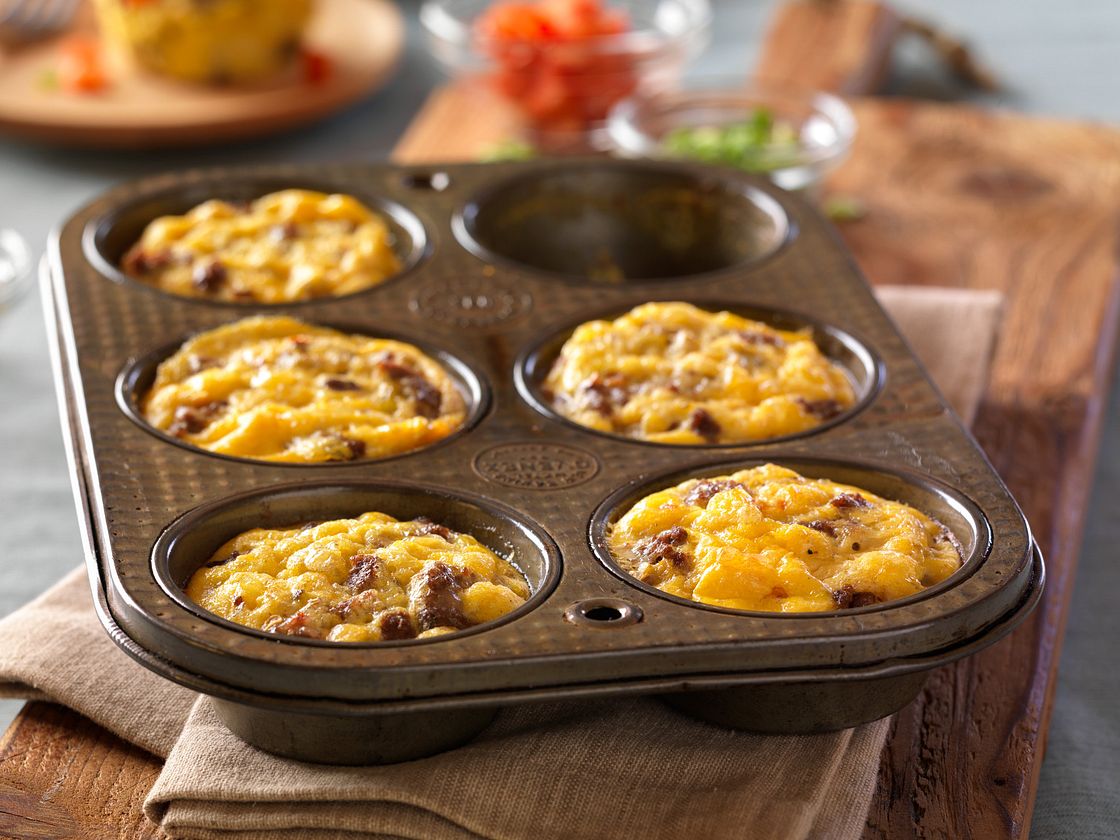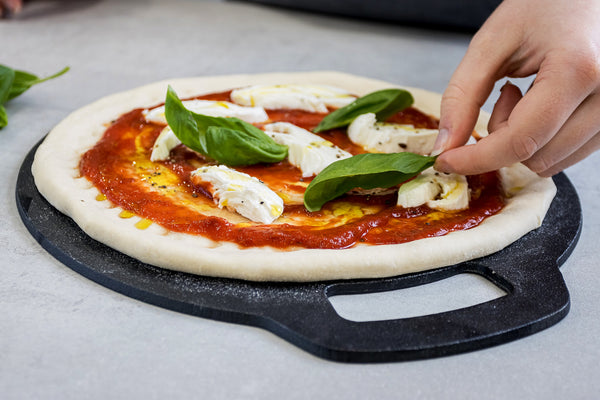In the ever-evolving world of culinary technology, induction cooking has been gaining popularity among kitchen professionals and home cooks alike. With its rapid heating capabilities and energy efficiency, induction cooking offers a modern twist to traditional cooking methods. However, one question that often arises is whether enameled cast iron is safe for induction cooktops. In this article, we will delve into the compatibility of enameled cast iron with induction cooking, providing you with everything you need to know.

Understanding Induction Cooking
Before we explore the compatibility of enameled cast iron with induction cooking, it's important to understand how induction cooktops work. Unlike traditional gas or electric stovetops, induction cooktops use electromagnetic fields to directly heat the cookware. This means that the cooktop itself remains cool to the touch, making it a safer option for busy kitchen environments.
Induction cooking requires cookware with a magnetic base to work effectively. This is because the electromagnetic fields generated by the cooktop induce an electric current in the cookware, heating it up. As a result, not all cookware is suitable for induction cooking, and this is where the question of enameled cast iron's compatibility comes into play.
What Makes Enameled Cast Iron Unique?
Enameled cast iron is renowned for its durability and excellent heat retention properties. It consists of a cast iron core coated with a layer of enamel, which provides a non-reactive and easy-to-clean cooking surface. The enamel coating also prevents the cast iron from rusting, making it a popular choice for a variety of cooking tasks.
One of the standout features of enameled cast iron is its ability to distribute heat evenly, ensuring that your dishes are cooked to perfection. This makes it a favored choice for slow cooking, braising, and baking. However, when it comes to induction cooking, the magnetic properties of the cookware become a crucial factor.
Enameled Cast Iron and Induction Compatibility
The good news for kitchen professionals is that enameled cast iron is indeed safe for induction cooking. The key to its compatibility lies in its cast iron core, which is magnetic. This allows the cookware to interact with the electromagnetic fields generated by the induction cooktop, resulting in efficient and even heating.
It's important to note that the enamel coating itself is not magnetic, but as long as the cookware has a magnetic base, it will work seamlessly with induction cooktops. This means you can continue to enjoy the benefits of enameled cast iron while taking advantage of the speed and precision of induction cooking.
Benefits of Using Enameled Cast Iron on Induction Cooktops
Using enameled cast iron on induction cooktops offers several advantages. Firstly, the even heat distribution provided by the cast iron core ensures that your dishes are cooked consistently. This is particularly beneficial for recipes that require precise temperature control, such as delicate sauces or slow-cooked stews.
Additionally, the enamel coating makes cleanup a breeze. Unlike traditional cast iron, enameled cast iron doesn't require seasoning, and its non-reactive surface means you can cook acidic ingredients without worrying about damaging the cookware. This makes it an excellent choice for a wide range of recipes.
For more tips on maximizing the use of your enameled cast iron on induction cooktops, check out this guide on re-seasoning cast iron.
Practical Tips for Using Enameled Cast Iron on Induction
To ensure the best results when using enameled cast iron on induction cooktops, here are some practical tips:
- Check for a flat bottom: Ensure that the bottom of your enameled cast iron cookware is flat and smooth. This will help maintain efficient contact with the cooktop, maximizing the transfer of heat.
- Avoid sudden temperature changes: While enameled cast iron is durable, it's important to avoid exposing it to sudden temperature changes. Allow the cookware to heat up gradually, and avoid placing it directly under cold water while it's still hot.
- Use the appropriate cookware size: Match the size of your enameled cast iron cookware with the size of the induction cooking zone. This will ensure even heating and prevent any hotspots.
For a deeper understanding of how induction cooking works, you can explore this Wikipedia article on induction cooking.
Conclusion
In conclusion, enameled cast iron is not only safe but also highly effective for induction cooking. Its magnetic core makes it compatible with induction cooktops, allowing you to enjoy the benefits of both traditional and modern cooking techniques. With its even heat distribution, easy cleanup, and versatile cooking capabilities, enameled cast iron remains a staple in professional kitchens.
For more insights on enhancing your culinary skills, consider exploring sizzling platter presentation tips to elevate your cooking artistry.

FAQs
1. Can enameled cast iron be used on all types of induction cooktops?
Yes, enameled cast iron is generally compatible with all types of induction cooktops as long as the cookware has a magnetic base.
2. Is enameled cast iron better than stainless steel for induction cooking?
Both enameled cast iron and stainless steel have their advantages. Enameled cast iron offers excellent heat retention, while stainless steel is lighter and often more responsive to temperature changes.
3. Can I use enameled cast iron on other heat sources?
Absolutely! Enameled cast iron is versatile and can be used on gas, electric, and even in the oven, in addition to induction cooktops. For more information, visit Lodge Cast Iron.






Leave a comment
This site is protected by hCaptcha and the hCaptcha Privacy Policy and Terms of Service apply.